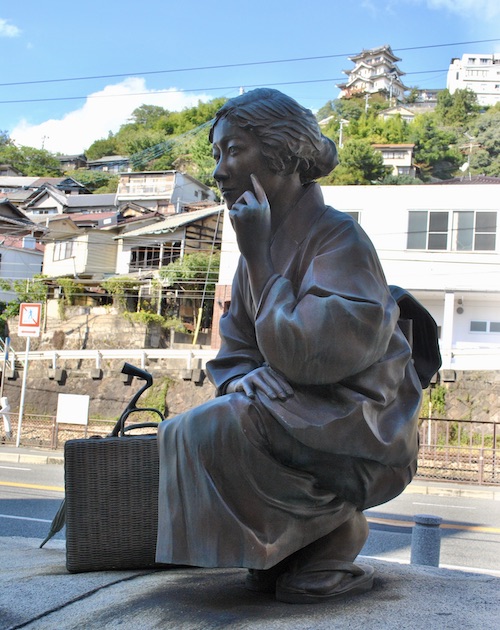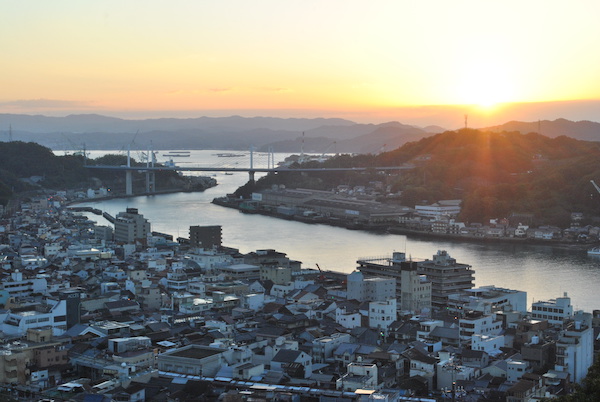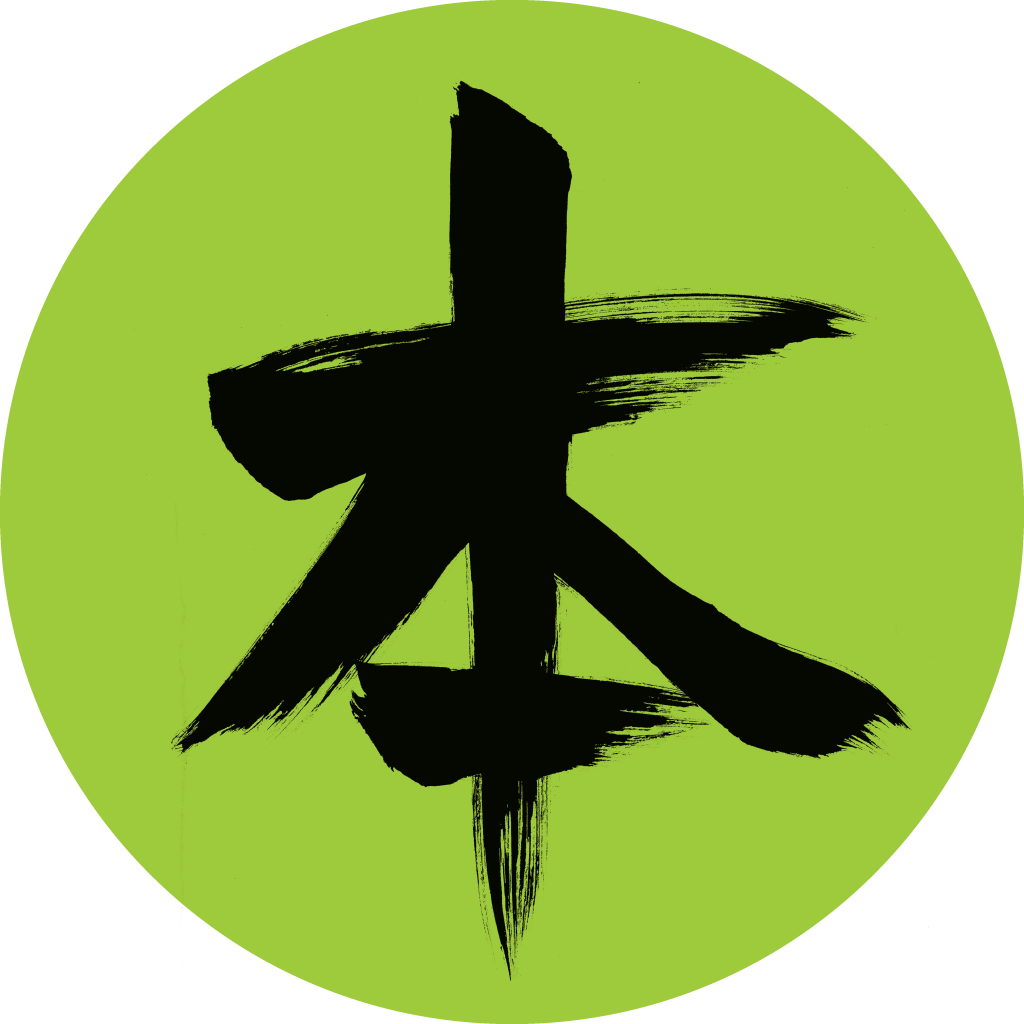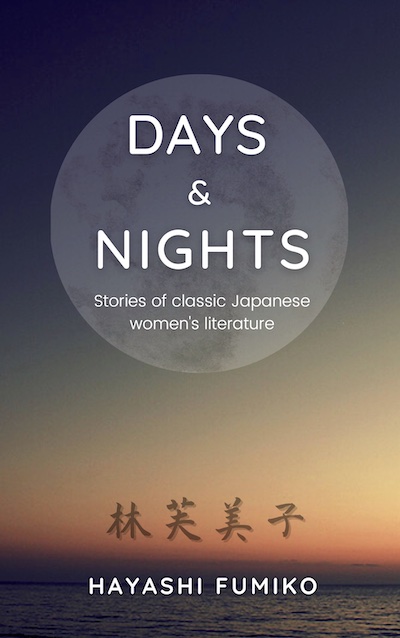
![]()
![]() About the Author
About the Author
Born in 1903, Hayashi Fumiko’s first notable literary work was Hōrōki (“Diary of a Vagabond”), an autobiographical novel describing her life of extreme poverty. Many of her stories focus on urban working-class life, a genre sometimes referred to as proletarian literature. Some important topics touched upon in her stories are free will, marriage, illegitimacy (she herself was an illegitimate child), and other feminist themes. Many of her stories feature strong, free-spirited women, but male characters also play an important part, sometimes serving as the main character.
She has produced over 200 books in her lifetime and has been called twentieth-century Japan’s most important woman writer.

![]() Excerpt from “The Tryst”, pg. 73-77 of “Days & Nights: Stories of Classic Japanese Women’s Literature” compiled and translated by J.D. Wisgo
Excerpt from “The Tryst”, pg. 73-77 of “Days & Nights: Stories of Classic Japanese Women’s Literature” compiled and translated by J.D. Wisgo
The unheated room was chilly, so I lay in bed with Keisuke. Since we had been talking the entire day, once I slipped into bed I lay silently on my back, eyes open and hands resting on my forehead. Keisuke also pulled his hands out from under the covers. I placed my hand into his large palm. “Are you cold?” Without a word, he gripped his large hand around mine, enveloping it. The rain had continued since morning, calming me. I didn’t feel like doing anything. A man whose heart sparkled like morning dew on a blade of grass, Keisuke made my heart jump with joy. We stared at the ceiling together, fingers entwined and bodies stretched out on the bed. Rain pelted hard against the window. It made a drip, drip sound passing through the gutter, like water falling on a rock, and the sky was a dim yellowish-brown, the air laden with moisture. The maid said that on clear days Mount Fuji was visible from the window, but last night when we arrived at this inn the rain had already begun, and there was no sign of the mountain. Apparently during the war this place served as a dormitory, and now this decrepit room had little more than a heavy mattress and a dirty tatami mat. Keisuke and I had somehow ended up all the way out here in Kofu city. This traveler’s inn was the result of our search for a place with a hot spring, but neither of us minded the grimy room. I was pregnant with Keisuke’s child. The peach-colored pajamas I wore were sewn baggy, for the most part hiding the unsightly form of a pregnant woman. Sometimes, as if struck by a sudden recollection, Keisuke would put his ear to my belly and listen to the sound of the child breathing within. Keisuke had a wife; I, a husband. The war had ended but this difficult situation of ours, having no relation to the war, managed to avoid collapse. It was just that I had to begin preparing for my child to be born several months from now.
We hadn’t had a proper meal for breakfast or lunch, yet neither of us felt particularly hungry. We wanted to lie together like this, even for a short while, resisting the fate that was trying to leave us behind. It felt like we were gripping each other tightly, refusing to let go. I thought that at least for this moment, god would take pity on our honest, glittering souls. I had managed to push aside those dark disturbing feelings that usually accompany trysts like this, and made peace with myself. Once in a while we told jokes and laughed. We had no time to really decide anything; nor did we have a desire to trick the world and stay together. There was an odd silence, like the enjoyment that must come to a prisoner in jail, even if only in the mind—a warm satisfaction, as if we would continue laughing together even if thrown into a valley. Believing that a happy ending would never come to two people like us, I was also comforted by the fact we were beyond the age of worrying needlessly about a dark future. I can just feel it—happiness, or at least that’s what I think it is. I decided that this was enough. Is there any reason to want more? After everything that happened, is there any need to try and justify how we got into all this?
Although seemingly irrational, there was a perfect logic between Keisuke and I. A logic born from our weakness, and while nothing to brag about, we hadn’t even the slightest belief in farfetched miracles. We were convinced that only after accepting that we might lose everything could we get through hard times like this.
Immorality, adultery, fraud—society would surely sling these stones at us. Even so, we could always lie together peacefully, smiles glowing on our lips. Because this was not a mistake. If anything, my seven years of marriage was a mistake, at least that’s how I felt. The only things to judge me now were the wind and the sky.
I never considered marrying Keisuke. When the time came to part with him, I’d just have to accept it…But I had confidence that we probably wouldn’t have a messy breakup. I simply wanted to raise a happy child until it began to think for itself, and then allow my child to lead the life it desired. Unlike many of those young girls, I didn’t concern myself with the myriad distractions of the world. I just loved Keisuke dearly. My heart only had room for him. We were able to get together whenever we liked, but sometimes two months passed without seeing each other. We had faith that even if we were apart for a long time, we could meet at any time, on a moment’s notice. There was no dark specter of our past towering over us. We weren’t able to tease one another with words, like playing with a child’s toy. Nor could we ask anything about each other’s daily lives. Keisuke was a heavy smoker. I didn’t smoke myself, but I always carried a match with me. That was my only way of keeping him on my mind. Sometimes when I was working in the kitchen I would light a match, and gaze at the flame for a while. Feelings of gentle affection radiated out from it, like the light of Venus slowly orbiting the Sun. Always fitting comfortably inside that flame of memory was Keisuke. Just like with the observation of celestial bodies, we are under the illusion that we completely see and understand everything there is to know about the human heart, but I feel there are many mysterious holes in our morals that leave much to be said, much to be discovered, and I refuse to believe in those morals. I refuse to believe in human knowledge that has a beginning, but like the tail of a comet has no defined end, disappearing silently into a world of nothingness.
“I wonder what time it is.”
I took the hand that Keisuke still held and placed it gently against my chest, turned over onto my stomach, and grabbed the wristwatch from beside my pillow.
“It’s odd we haven’t been eating much.”
“What time is it?”
“Three.”
“What do you want to do?”
“I’ll go take a trip to the city. Maybe I’ll pick up something there.”
Keisuke got out of bed and changed. I grinned when I saw his head nearly touching the ceiling. He stepped into the hallway but returned a moment later, saying he forgot his wallet.
“You silly man.”
“Yeah, but I blame you…”
“Just don’t drop your wallet, OK?”
“Don’t worry, I’ll be fine,” he said and left.
Having met as surgeon and patient, it was a little sad that we didn’t have a single common friend, but now I felt that having no shared friends was a blessing in disguise. An unobtrusive general practitioner without a doctorate degree, Keisuke was a man lacking the ambition to become a great doctor. With a modest temperament that didn’t try to keep up appearances, he had been loved by several women before me. I heard that after graduating from the University of Kyushu School of Medicine, Keisuke spent some time in Singapore.
But I didn’t care at all about Keisuke’s past. I fell in love with him naturally. At first, I had the impression he was a man with a harsh tongue, and his way of speaking angered me. Ironically, as a result I began to quietly observe him. Despite being a meticulous worker who was considerate toward his patients, he had a terribly crude way of expressing himself. For some strange reason I dreamt about him two nights in a row.
In a room of an unfamiliar hotel in a foreign land, a place deep in the mountains shrouded by mist, I dined in the light of a lamp. Beside me was Keisuke, and across from us sat two soldiers having dinner. Then, the next night I dreamt that I was searching for Keisuke’s room, and the instant I gently opened his door he yelled out, “Who’s there?” There was nothing particularly special about those dreams, but they haunted me for a long time after that. Whenever I met Keisuke in reality, his tongue was as sharp as ever. At the age of 34, three years younger than me, he was in the prime of his life. During the war Keisuke had his own practice in Aoyama, but when his house was destroyed in an air raid he forced his family to evacuate to their hometown of Himeji, staying in Tokyo by himself to work in the operating room of a certain hospital. I always used to joke how his chloroform anesthetic worked like a charm, and that was the only time the normally sharp-tongued Keisuke would blush, a hint of a grin on his face.
Soon after getting together we discovered that our past experiences held surprisingly little power over us, and this brought us great joy, as if we both had suddenly been born out of thin air. I thought that the mystery of Adam and Eve represented a love like ours. I have an old memory of once seeing the amorous Leda embracing Venus in my father’s study and being in shock for some time afterwards; at times, I daydreamed that Keisuke’s hands were the wings of Leda. To me, passion is like a sea overflowing with water.
About the Translator:
This translated excerpt is from Days & Nights: Stories of Classic Japanese Women’s Literature compiled and translated by J.D. Wisgo. The print book is available on Amazon US and Amazon Japan
In May 2021, J.D. started his own publishing house, Arigatai Books. Currently, he only publishes his own translations, but he has ambitious goals for this new publishing endeavor. Find out more at Arigatai Books.

